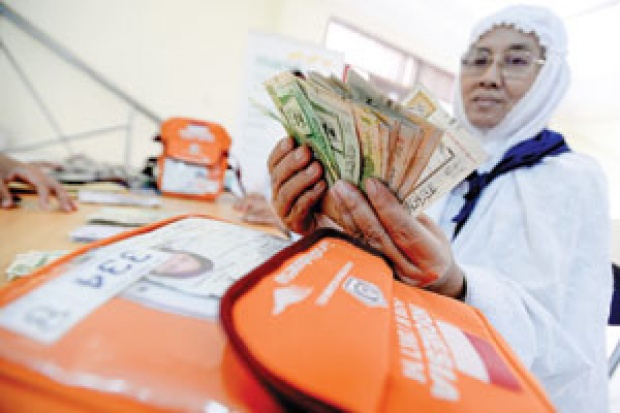
TEMPO.CO, Jakarta - The management of haj funds must be transparent and accountable. Therefore, President Joko Widodo needs to think carefully about the proposal to invest haj funds in infrastructure projects. Many infrastructure projects during Jokowi’s administration have been beset by problems, and not all guarantee benefits. Furthermore, the final decision about where to place haj funds should be left in the hands of the Haj Funds Management Agency. This new body needs to be given the freedom to manage the funds - which as of December totaled Rp91 trillion.
Many people hope that the Management Agency will not repeat the confusion in the management of these funds as have been seen in the past. Embezzlement and misuse of the funds caused people to completely lose faith in the ability of the government to manage haj money. This is why arguments both for and against immediately appeared when President Jokowi proposed investing them in infrastructure.
If the government wants to learn more, there is the Malaysian Haj Investment Institute, which was set up in 1969. As of 2016, the institute managed more than Rp19.8 trillion-almost 90 percent invested overseas. It has invested in property in Britain, Australia, Saudi Arabia and in Malaysia itself.
The institute has used these investments to provide significant subsidies for people making the pilgrimage. The cost of the 2017 haj from Malaysia is 19,550 ringgit, or around Rp61 million. Prospective pilgrims pay only Rp31 million because the Haj Investment Institute provides subsidies of almost 50 percent. Malaysian pilgrims enjoy good facilities, such as accommodation only a five to ten-minute walk from the Al-Haram Mosque.
The Malaysian institute has credibility because of the transparent financial management. Pilgrims, or anybody at all, can visit the Haj Investment Institute website and access all the information, including the cost of the pilgrimage, the amount paid by pilgrims and the size of the subsidy. They can also see the total amount of funds and where they are invested, both domestically and overseas.
The Jokowi administration has done several things the same way as the Malaysians. The government has already gave subsidies taken from down payments to pilgrims, in the form of discounts on flights or accommodation or spending money for use in Saudi Arabia. But the facilities for Indonesian pilgrims are not as good as those for Malaysians. The accommodation for Indonesians is far from the Al-Haram Mosque, and pilgrims have to use expensive public transport because there are not enough buses.
The way we manage haj funds is also not as transparent as the Malaysians. Some of the money is still being used to pay the travel costs of haj officials. This is still ‘acceptable’, but a significant sum is used to pay haj travel cost for officials and their families, from ministries and other government bodies, legislators and the leaders of public organizations. They take turns to make use of the funds that prospective pilgrims have struggled so hard to save.
With this kind of track record, the government should give the Haj Funds Management Agency the opportunity to work independently. There is no need for the government to give ‘guidance’, let alone instructions, about where to place funds. If the Agency does decide to invest in infrastructure, this should be the result of a genuine initiative from the Agency after considering the benefits to prospective pilgrims.
Read the full story in this week’s edition of Tempo English Magazine























